Speakers
An amazing lineup to help advance your career as a physician-scientist
Keynote Speakers
Ana Maria Cuervo, MD, PhD (APSA Speaker)
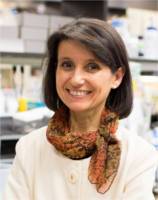
Friday, April 20th
11:00 am – 11:45 am
International Ballroom
R.R. Belfer Chair for Neurodegenerative Diseases and Co-Director of the Einstein Institute for Aging Studies
Ana Maria Cuervo is the R.R. Belfer Chair for Neurodegenerative Diseases, Professor in the Departments of Developmental and Molecular Biology and of Medicine of the Albert Einstein College of Medicine and co-director of the Einstein Institute for Aging Studies. She obtained her M.D. and a Ph.D. in Biochemistry and Molecular biology from the University of Valencia (Spain) and received postdoctoral training at Tufts University, Boston. In 2002, she started her laboratory at the Albert Einstein College of Medicine, where she continues her studies in the role of protein-degradation in neurodegenerative diseases and aging.
Dr. Cuervo has received prestigious awards such as the P. Benson and the Keith Porter in Cell Biology, the Nathan Shock Memorial Lecture, the Vincent Cristofalo and the Bennett J. Cohen in basic aging biology and the Marshall Horwitz and the Saul Korey Prize for excellence in research and in Translational Medicine. She delivered prominent lectures such as the Robert R. Konh, the NIH Director’s, the Roy Walford, the Feodor Lynen, the Margaret Pittman, the IUBMB Award, the David H. Murdoxk, the Gerry Aurbach and the Harvey Society Lecture. She is currently co-Editor- in-Chief of Aging Cell and has been member of the NIA Scientific Council and of the NIH Council of Councils.
Levi A. Garraway, MD, PhD (APSA Speaker)

Friday, April 20th
12:00 am – 12:45 am
International Ballroom
Senior Vice President, Global Development and Medical Affairs of Eli Lilly and Company
Levi received his AB, MD, and PhD degrees from Harvard Medical School. Thereafter, he did an internship and residency in internal medicine at the Massachusetts General Hospital, where he also served as Medical Chief Resident in 2003. Garraway completed his fellowship training in medical oncology at the Dana-Farber Cancer Institute. He received board certification in internal medicine and medical oncology.
Prior to joining Eli Lilly and Company, Garraway served as an investigator of the Howard Hughes Medical Institute and an Associate Professor of Medicine at the Dana-Farber Cancer Institute, Harvard Medical School and an Institute Member of the Broad Institute. He was the inaugural Director of the Joint Center for Cancer Precision Medicine, which spans the Dana-Farber, Brigham and Women's Hospital, Boston Children's Hospital and the Broad Institute of MIT and Harvard. Garraway led a research group that studied cancer genomics, drug resistance, and cancer precision medicine. His research informed several gene targets and “druggable” pathways relevant to the genesis and therapeutic vulnerabilities of melanoma, prostate cancer, and other malignancies. Garraway has received numerous awards including the Paul Marks Prize for Cancer Research, the Jane Cooke Wright Award from AACR, the New Innovator Award from the NIH and an Outstanding Investigator Award from the National Cancer Institute.
Victor J. Dzau, MD (ASCI/AAP Speaker)
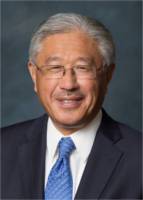
Friday, April 20th
1:00 pm – 1:30 pm
International Ballroom
President of the National Academy of Medicine
Victor J. Dzau is the President of the National Academy of Medicine (NAM), formerly the Institute of Medicine (IOM). In addition, he serves as Vice Chair of the National Research Council. Dr. Dzau is Chancellor Emeritus and James B. Duke Professor of Medicine at Duke University and the past President and CEO of the Duke University Health System. Since arriving at the National Academies, Dr Dzau has led important initiatives such as the Commission on a Global Health Risk Framework; the Human Gene Editing Initiative; and Vital Directions for Health and Health Care, and the NAM Grand Challenges in Healthy Longevity. His own research laid the foundation for development of the class of lifesaving drugs known as ACE inhibitors, used globally to treat high blood pressure and congestive heart failure.
As one of the world’s preeminent health leaders, Dr. Dzau advises governments, corporations, and universities worldwide. He has served as a member of the Advisory Committee to the Director of the National Institutes of Health (NIH) and as Chair of the NIH Cardiovascular Disease Advisory Committee. Currently he is a member of the Board of the Singapore Health System, member of the Health Biomedical Sciences the International Advisory Council of Singapore and Advisory Council of the Imperial College Health Partners, UK. . He was on the Board of Health Governors of the World Economic Forum and chaired its Global Agenda Council on Personalized and Precision Medicine.
Luigi Ferrucci, MD, PhD (ASCI/AAP Speaker)
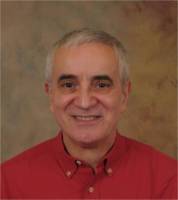
Friday, April 20th
1:30 pm – 2:00 pm
International Ballroom
Scientific Director at the National Institutes of Health
Dr. Luigi Ferrucci is a geriatrician and an epidemiologist who conducts research on the causal pathways leading to progressive physical and cognitive decline in older persons. He has made major contributions in the design of many epidemiological studies conducted in the U.S. and in Europe, including the European Longitudinal Study on Aging, the "ICare Dicomano Study," the AKEA study of Centenarians in Sardinia and the Women's Health and Aging Study. He was also the Principal Investigator of the InCHIANTI study, a longitudinal study conducted in the Chianti Geographical area (Tuscany, Italy) looking at risk factors for mobility disability in older persons. Dr. Ferrucci received a Medical Degree and Board Certification in 1980, Board Certification in Geriatrics in 1982 and Ph.D. in Biology and Pathophysiology of Aging in 1998 at the University of Florence, Italy. He spent a 2-year internship at the Intensive Care Unit of the Florence Institute of Gerontology and Geriatrics, and was for many years Associate Professor of Biology, Human Physiology and Statistics at the University of Florence. Between 1985 and 2002 he was Chief of Geriatric Rehabilitation at the Department of Geriatric Medicine and Director of the Laboratory of Clinical Epidemiology at the Italian National Institute of Aging. In September 2002, he became the Chief of the Longitudinal Studies Section at NIA. From 2002 to 2014 he was the Director of the Baltimore Longitudinal Study on Aging. Dr. Ferrucci is currently the Scientific Director of NIA, since May 2011.
Omar Abdel-Wahab, MD, PhD (ASCI Speaker)
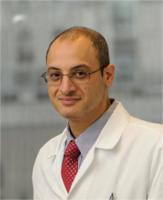
Friday, April 20th
2:00 pm – 2:15 pm
International Ballroom
Memorial Sloan Kettering Cancer Center
Dr. Abdel-Wahab is an Associate Member in the Human Oncology and Pathogenesis Program and an Attending Physician on the Leukemia Service in the Department of Medicine at Memorial Sloan Kettering Cancer Center (MSK). He also serves as co-director of the Hematology/Medical Oncology fellowship program at MSK and co-director of the Center for Hematologic Malignancies. His research focuses on understanding the functional implications of somatic mutations found in patients with hematopoietic malignancies with the hopes of improving our understanding of disease biology and develop novel therapies. Currently,his lab is centered on the role of mutations affecting the transcriptional regulation in leukemias. This includes mutations in epigenetic modifiers in leukemia pathogenesis as well as mutations in components of the RNA splicing factor machinery. They have generated substantial reagents to study the role of mutated spliceosomal factors in hematopoietic malignancies and solid tumors, including several murine models of mutations in the gene Srsf2, Sf3b1, and Zrsr2. They utilize these models to create novel murine models of myeloid malignancies for epigenomic, functional, and preclinical therapeutic studies. Finally, They are also interested in hematological malignancies driven by MAP kinase pathway alterations. Their research is supported by the NIH, National Cancer Institute, National Heart, Lung, and Blood Institutes, the Leukemia & Lymphoma Society, the Dept. of Defense, the American Society of Hematology, and numerous additional philanthropic organizations. His work has been recognized by a 2017 ASCI Seldin Smith Award and the 2016 Joanne Levy Memorial Award for Outstanding Achievement from the American Society of Hematology.
Maria T. Abreu, MD (AAP Speaker)
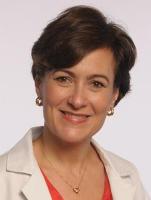
Friday, April 20th
2:15 pm – 2:30 pm
International Ballroom
University of Miami Miller School of Medicine
Maria T. Abreu, M.D., is a physician-science in gastroenterology with a focus in inflammatory bowel disease (IBD). She completed her medical degree at the University of Miami, Miller School of Medicine, her residency in medicine at Brigham and Women’s Hospital, and research fellowship in gastroenterology at the University of California, Los Angeles (UCLA). She is currently the Director of the Crohn’s and Colitis Center at UM, Professor of Medicine and Professor of Microbiology and Immunology.
Dr. Abreu was elected to the American Society for Clinical Investigation in 2010. She is the current Chair of the American Gastroenterological Association (AGA) Institute Council. Her research has focused on innate immunity and its contribution to IBD. Dr. Abreu’s laboratory-based NIH-funded research focuses on colitis-associated cancer, stem cells, and the microbiome. Since returning to Miami, Dr. Abreu’s translational research focuses on the rising incidence of IBD in immigrants from Latin America and in Hispanic-Americans. She and her colleagues have described the phenotype and genotype of Hispanic patients in Miami developing IBD.
Kathleen H. Burns, MD, PhD (ASCI Speaker)
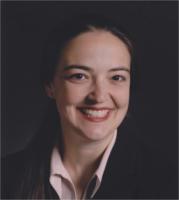
Friday, April 20th
2:30 pm – 2:45 pm
International Ballroom
John Hopkins University School of Medicine
Dr. Burns is a physician-scientist and practicing hematopathologist at the Johns Hopkins University School of Medicine. Her research laboratory studies roles mobile genetic elements play in human disease. Her lab was one of the first to develop a targeted method to amplify mobile DNA insertion sites in the human genome for comprehensive insertion mapping. Their studies have shown that mobile element insertions represent a significant source of inherited structural variation in human populations, and the group has identified numerous potentially functional insertion variants at loci associated with human disease risk. Her lab also studies the expression and activity of mobile DNAs in human cancers. The lab has developed reagents to detect proteins encoded by active retrotransposons, namely, Long INterspersed Element-1 (LINE-1) open reading frame 1p (ORF1p) and ORF2p. They have shown aberrant expression of ORF1p in a wide variety of human cancers. This activation of LINE-1 is associated with somatic activity, and the Burns lab has mapped insertions of LINE-1 sequences acquired during the clonal evolution of gastrointestinal and ovarian cancers. The lab has ongoing projects to discern the functional consequences of somatically-acquired mobile element insertions, as well as other effects of ORF1p and ORF2p expression in malignancy. Dr. Burns recently served as co-Chair of a strategic workshop at the National Cancer Institute on roles of mobile genetic elements in cancer, and as the Organizer for a FASEB meeting on Mobile DNAs in the Mammalian Genome. She has authored numerous primary articles and reviews on human transposons and their roles in disease. Dr. Burns also serves as Vice Chair for Research for the Department of Pathology at Johns Hopkins, and as the inaugural Director of the institution’s Physician Scientist Training Program (PSTP).
Ross L. Levine, MD (AAP Speaker)
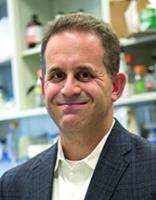
Friday, April 20th
2:45 pm – 3:00 pm
International Ballroom
Memorial Sloan Kettering Cancer Center
Ross Levine, MD, is a Member of the Human Oncology and Pathogenesis Program and an Attending Physician on the Leukemia Service, Department of Medicine. He is the Laurence Joseph Dineen Chair in Leukemia Research, a Professor of Medicine at Weill Cornell Medical College, and is the Director of the MSK Center for Hematologic Malignancies. Dr. Levine was born and raised in the New York area, and then received his AB from Harvard College and a M.D. from Johns Hopkins. Dr. Levine served as an Resident in Internal Medicine at the MGH and subsequently as a Hematology-Oncology Fellow at DFCI/Harvard. In September 2007 he was recruited to MSK to the Human Oncology and Pathogenesis Program, while he also sees patients on the MSK Leukemia Service.
Sir Peter Ratcliffe, FRS (APSA Speaker)

Friday, April 20th
4:00 pm – 4:30 pm
International Ballroom
Nuffield Professor of Clinical Medicine at the University of Oxford
Peter Ratcliffe is a physician scientist who trained in medicine at Gonville and Caius College, Cambridge and St. Bartholomew’s Hospital, London, before moving to Oxford to specialise in renal medicine. His work on oxygen sensing has won a number of awards including the Louis-Jeantet Prize in Medicine, the Canada Gairdner International Award, and the Lasker Award for Basic Biomedical Research. Peter was elected to the Fellowship of the Royal Society and to the Academy of Medical Sciences in 2002. He is a member of EMBO and a foreign honorary member of the American Academy of Arts and Sciences. He was knighted for services to medicine in the New Year's Honours, 2014.
In 2004, he was appointed Nuffield Professor of Clinical Medicine at the University of Oxford and served as Head of the Nuffield Department of Clinical Medicine from 2004-2016. In May 2016 he was appointed Director of Clinical Research at the Francis Crick Institute, retaining a position at Oxford asmember of the Ludwig Institute of Cancer Research and Director of Oxford's Target Discovery Institute.
Joseph Heitman, MD, PhD, (ASCI Speaker)

Friday, April 20th
5:00 pm – 5:30 pm
International Ballroom
Chair and James B. Duke Professor of the Department of Molecular Genetic and Microbiology at Duke University
Joseph Heitman, MD, PhD, is a James B. Duke Professor in the Departments of Molecular Genetics and Microbiology, Pharmacology and Cancer Biology, and Medicine at Duke University Medical Center and Chair of the Department of Molecular Biology and Director of the Duke Center for Microbial Pathogenesis. He served as director of the Duke University Program in Genetics and Genomics from 2002-2009. Dr. Heitman received his MD-PhD training at Cornell and Rockefeller Universities, where he worked with Peter Model and Norton Zinder on how restriction enzymes recognize specific DNA sequences and how bacteria respond to and repair DNA breaks and nicks. Dr. Heitman was an EMBO long-term fellow at the Biocenter in Basel, Switzerland prior to moving to Duke in 1992. Dr. Heitman and colleagues focus on the model yeast Saccharomyces cerevisiae and the pathogenic fungi Cryptococcus neoformans and Candida albicans. Their studies have revealed the conserved targets for immunosuppressive antifungal drugs and delineated calcineurin and Tor signaling pathways. In parallel, studies on dimorphic transitions led to the discovery of conserved mechanisms involved in nutrient sensing, including carbon and nitrogen sources, involving a novel G protein coupled receptor that senses sugars, and an ammonium permease related to the Rh antigens that senses nitrogen sources. Their studies in C. neoformans studies have led to definition of general principles of signal transduction that control cell development, and roles for the calcineurin, cAMP-protein kinase A, and MAP kinase cascades in mating and virulence. In parallel, they have delineated the structure and function of the mating type locus that governs development and virulence, and are currently examining the role of sexual recombination in the evolution of virulence in sub-Saharan Africa and an outbreak of C. neoformans variety gattii that is occurring on Vancouver Island, British Columbia.
George Daley, MD, PhD, (ASCI Speaker)
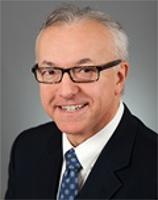
Friday, April 20th
7:00 pm – 9:45 pm
Rouge
Harvard Medical School Dean
Dr. Daley is dean of Harvard Medical School (HMS) and the Caroline Shields Walker Professor of Medicine at HMS. He has been professor of biological chemistry and molecular pharmacology at HMS since 2010 and an investigator of the Howard Hughes Medical Institute since 2008. In July 2016, he became the Robert A. Stranahan Professor of Pediatrics and Professor of Biological Chemistry and Molecular Pharmacology at HMS. He previously held, as its inaugural incumbent, the Samuel E. Lux, IV Chair in Hematology/Oncology at Boston Children’s Hospital.
A former chief resident in medicine at Massachusetts General Hospital (1994-95), Daley maintained an active clinical practice in hematology/oncology at Massachusetts General Hospital (MGH) and then at Boston Children’s, until assuming his administrative role as director of the Pediatric Stem Cell Transplantation Program at Dana-Farber/Boston Children's Cancer and Blood Disorders Center, a post he held until Jan. 2017. Dr. Daley earned his PhD in biology (1989) at MIT, working in David Baltimore’s laboratory at the MIT-affiliated Whitehead Institute for Biomedical Research, and his MD from HMS in 1991. Dr. Daley was an inaugural winner of the National Institutes of Health Director’s Pioneer Award for highly innovative research (2004).
Eric Verdin, MD (APSA Speaker)

Saturday, April 21st
9:45 pm – 10:15 pm
International Ballroom
President and CEO of the Buck Institute for Research on Aging
Eric Verdin is the President and CEO of the Buck Institute for Research on Aging. A native of Belgium, Dr. Verdin received his Doctorate of Medicine (MD) from the University of Liege and additional clinical and research training at Harvard Medical School. He has held faculty positions at the University of Brussels, the National Institutes of Health (NIH), the Picower Institute for Medical Research and the Gladstone Institutes. Dr. Verdin is also a Professor of Medicine at University of California, San Francisco. Dr. Verdin’s laboratory focuses on the role of epigenetic regulators in the aging process. His laboratory was first to clone a family of enzymes, called HDACs, which regulate histone acetylation. Dr. Verdin studies how metabolism, diet and small molecules regulate the activity of HDACs and Sirtuins and thereby the aging process and its associated diseases, including Alzheimer’s. He has published more than 210 scientific papers and holds more than 15 patents. He has been recognized for his research with a Glenn Award for Research in Biological Mechanisms of Aging and a senior scholarship from the Ellison Medical Foundation. He is a fellow of the American Association for the Advancement of Science and an elected member of the American Society for Clinical Investigation and the Association of American Physicians. He also serves on the Advisory Council of NIDA at the National Institutes of Health.
Mary Yousry Armanios, MD (ASCI/AAP Speaker)

Saturday, April 21st
10:30 pm – 11:00 pm
International Ballroom
Professor of Oncology and Genetic Medicine at the Johns Hopkins University School of Medicine
Mary Armanios is Professor of Oncology and Genetic Medicine at the Johns Hopkins University School of Medicine. Her research interests have focused on understanding the role of telomeres and telomerase in disease. Dr. Armanios earned her medical degree at the Ohio State University, where she went on to complete a combined internal medicine and pediatrics residency. She then moved to Johns Hopkins to complete her medical oncology fellowship. She is currently the Clinical Director of the Telomere Center at Johns Hopkins and overseas the telomere diagnostics lab at Johns Hopkins Hospital. Dr. Armanios is a member of the American Society for Clinical Investigation and serves as Associate Editor of the Journal of Clinical Investigation.
Eric Topol, MD (ASCI/AAP Speaker)
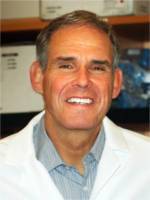
Saturday, April 21st
11:00 am – 11:30 am
International Ballroom
Director, Scripps Translational Science Institute
Eric Topol is the Founder and Director of the Scripps Translational Science Institute (STSI), Professor, Molecular Medicine, and Executive Vice-President of The Scripps Research Institute (TSRI). As a researcher, he has published over 1100 peer-reviewed articles, with more than 185,000 citations, elected to the National Academy of Medicine, and is one of the top 10 most cited researchers in medicine (Thomson Reuters ISI, “Doctor of the Decade”). His principal scientific focus has been on the genomic and digital tools to individualize medicine—and the power that brings to individuals to drive the future of medicine.
In 2016, Topol was awarded a $207M grant from the NIH to lead a significant part of the Precision Medicine Initiative, a prospective research program that aims to enroll 1 million participants in the US. Prior to coming to lead Scripps STSI in 2007, for which he is the principal investigator of a flagship $33M NIH grant, he led the Cleveland Clinic to become the #1 center for heart care and was the founder of a new medical school there. He has been voted as the #1 most Influential physician leader in the United States in a national poll conducted by Modern Healthcare. Besides editing several textbooks, he has published 2 bestseller books on the future of medicine: The Creative Destruction of Medicine and The Patient Will See You Now.
Timothy J. Ley, MD (ASCI/AAP Speaker)
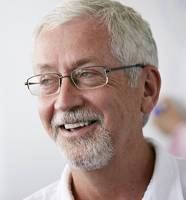
Saturday, April 21st
1:30 pm – 2:00 pm
International Ballroom
Lewis T. and Rosalind B. Apple Chair in Oncology at Washington University in St. Louis
Dr. Timothy J. Ley received his BA from Drake University, his MD degree from Washington University Medical School, and performed his internal medicine residency at Massachusetts General Hospital. He completed fellowships in Hematology and Oncology at the NIH and at Washington University, and joined the faculty at Washington University in St. Louis in 1986. He now holds the Lewis T. and Rosalind B. Apple Chair in Oncology, is Professor of Medicine and of Genetics at Washington University, and serves as Director of the Stem Cell Biology Section in the Department of Medicine. Ley is a past president of the American Society for Clinical Investigation, past treasurer of the American Association of Physicians, a fellow of AAAS and the American Academy of Arts and Sciences, and a member of the National Academy of Medicine. He was appointed by President Obama to the National Cancer Advisory Board in 2015.
Ley has developed approaches to reactivate fetal hemoglobin synthesis for patients with hemoglobinopathies, defined the role of the perforin/granzyme system for the function of cytotoxic and regulatory T cells, and has performed pioneering studies that have precisely defined the genomics of acute myeloid leukemia. He has written extensively about the physician-scientist career path, and was an advocate for establishing the extramural Loan Repayment Programs at the NIH. He has mentored more than 50 pre- and post-doctoral fellows in his laboratory; most hold research positions in academic medicine or pharmaceutical companies.
Irving Weissman, MD (ASCI/AAP Speaker)
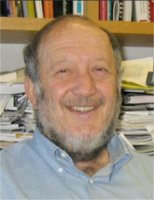
Saturday, April 21st
2:15 pm – 2:45 pm
International Ballroom
Virginia & D.K. Ludwig Professor for Clinical Investigation in Cancer Research at Stanfor University
Irving L. Weissman, M.D., is the Director of the Stanford Institute for Stem Cell Biology and Regenerative Medicine and Director of the Stanford Ludwig Center for Cancer Stem Cell Research. Previously, he was a member of the founding Scientific Advisory Boards of Amgen (1981-1989), DNAX (1981-1992), and T-Cell Sciences (1988-1992). He co-founded, was a Director, and chaired the Scientific Advisory Board at SyStemix 1988-1996, StemCells in 1996-present, and Cellerant in 2001-9. He founded Forty Seven Inc. in 2015, and is a Director of the Company.
His research encompasses the biology and evolution of stem cells and progenitor cells, mainly blood-forming and brain-forming. He is also engaged in isolating and characterizing the rare cancer and leukemia stem cells as the only dangerous cells in these malignancies, especially with human cancers. He discovered that all cancer stem cells express CD47, the ‘don’t eat me’ signal, to overcome prophagocytic signals that arise during cancer development, and has shown that blocking antibodies to CD47 have therapeutic potential for all tested human cancers. His laboratory was first to identify and isolate the blood-forming stem cell from mice, and has purified each progenitor in the stages of development between the stem cells and mature progeny (granulocytes, macro-phages, etc.). At SyStemix he co-discovered the human hematopoetic stem cell and at StemCells, he co-discovered a human central nervous system stem cell.
Richard P Lifton, MD, PhD (ASCI/AAP Speaker)

Saturday, April 21st
3:15 pm – 3:45 pm
International Ballroom
President of The Rockefeller University
Richard Lifton is President of The Rockefeller University where he is also head of the laboratory of Human Genetics and Genomics. He received MD and PhD degrees from Stanford. He then was Resident and Chief Resident in Medicine at Brigham and Women’s Hospital, and continued on the Harvard Medical School faculty before being recruited to Yale in 1993, where he served as Sterling Professor and Chair of Genetics from 1998 to 2016 before moving to Rockefeller. At Yale he was also Founder and Executive Director of the Yale Center for Genome Analysis.
Dr. Lifton has used human genetics and genomics to identify mutations that identify key genes and pathways underlying hypertension, myocardial infarction, osteoporosis, cerebral hemorrhage, congenital heart disease and neoplasia. His work on hypertension, which affects one billion people worldwide, has demonstrated the key roles of renal salt and potassium handling in blood pressure regulation, leading to new approaches to treatment and prevention that have been applied to the general population world-wide. In 2009 his group developed exome sequencing and performed the first clinical diagnosis by genome- level sequencing.
Helen H. Hobbs, MD (ASCI/AAP Speaker)
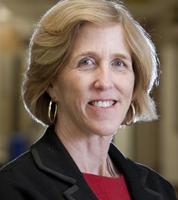
Saturday, April 21st
3:45 pm – 4:15 pm
International Ballroom
Director of the McDermott Center for Human Growth and Development at University of Texas Southwestern Medical Center
Helen Hobbs received her undergraduate degree from Stanford University and her medical degree from Case Western Reserve University School of Medicine. After obtaining her clinical and post-doctoral training at Columbia-Presbyterian Hospital and University of Texas (UT) Southwestern Medical Center Dallas, she joined the faculty. She is currently Professor of Internal Medicine and Molecular Genetics, as well as Director of the McDermott Center for Human Growth and Development at UT Southwestern Medical Center in Dallas. Since 2002, she has been an Investigator of the Howard Hughes Medical Institute. In partnership with Jonathan Cohen, she has identified genes and sequence variations contributing to metabolic and cardiovascular disorders with a focus on lipids and lipoproteins. Together they showed that rare genetic variations contribute to complex traits in the general population. Additionally, they have identified genetic variants that contribute to the full spectrum of fatty liver disease, extending from hepatic steatosis to cirrhosis. Hobbs was elected to the Institute of Medicine, American Academy of Arts and Sciences, and the National Academy of Sciences. She has been awarded prizes for her work including the Clinical Research Prize (2005), the Distinguished Scientist Award (2007), and the Inaugural International Society of Atherosclerosis Prize (2012).
Serpil C. Erzurum, MD (ASCI/AAP Speaker)
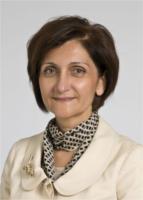
Saturday, April 21st
4:15 pm – 4:45 pm
International Ballroom
Alfred Lerner Chair of the Lerner Research Institute
Serpil Erzurum, MD, is the Alfred Lerner Chair of the Lerner Research Institute and a staff physician at the Cleveland Clinic. Dr. Erzurum earned her medical degree from Northeastern Ohio Universities College of Medicine and completed residency training in Internal Medicine at Baylor College of Medicine where she was named the MacIntosh outstanding resident. Following completion of residency, she practiced in the Indian Health service in South Dakota, serving as TB officer for the western part of the state. Subsequently, she entered pulmonary and critical care fellowship training at the University of Colorado/National Jewish Center and then postdoctoral research training at the National Heart, Lung and Blood Institute.
Her scientific contributions and leadership in pulmonary research have led to diagnostic and therapeutic advances in asthma and lung vascular diseases, and helped to identify human physiologic adaptive responses to high-altitude hypoxia. She has published more than 250 peer-reviewed articles and her research is funded by a wide variety of grants from the National Institutes of Health. She has earned numerous awards, including the MERIT award from NHLBI, election to the American Society for Clinical Investigation (ASCI), election to the Association of American Physicians, election to the National Academy of Medicine, and the Elizabeth Rich Award from the American Thoracic Society for her work in advancing the careers of women in medicine and science.
Stuart H. Orkin, MD
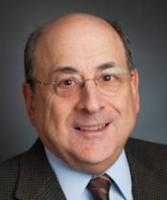
Saturday, April 21st
4:45 pm – 5:15 pm
International Ballroom
David G. Nathan Distinguished Professor of Pediatrics at Harvard Medical School
Dr. Stuart H Orkin is the David G. Nathan Distinguished Professor of Pediatrics at Harvard Medical School, and an Investigator of the Howard Hughes Medical Institute. Orkin’s pioneering efforts defined the molecular basis of human blood disorders and mechanisms governing blood cell development. His early accomplishments led to the first comprehensive molecular dissection of an inherited disorder (the thalassemia syndromes). He characterized genes responsible for other human blood disorders, including X-linked chronic granulomatous disease (the first positional cloning). Orkin then transformed the study of blood stem cell development by identifying and characterizing the first hematopoietic transcription factors (the GATA family) and their critical co-activators. His recent landmark studies on BCL11A, a critical repressor of fetal hemoglobin (HbF), have illuminated regulation of the fetal-to-adult switch and improved prospects for HbF reactivation as genetic or pharmacological therapy of the thalassemias and sickle cell disease. These contributions to human genetics and medicine are unmatched for their breadth, focus, and broad impact. He is also an elected member of the National Academy of Sciences (NAS), Institute of Medicine, American Academy of Arts and Sciences, and the American Philosophical Society, and recipient of the E. Mead Johnson Award of the American Academy of Pediatrics, the Warren Alpert Prize, the Helmut Horten Foundation Prize, the Distinguished Research Award from the Association of American Medical Colleges (AAMC), the E. Donnall Thomas, Dameshek and Basic Science Mentor Awards of the American Society of Hematology (ASH), the Metcalf Award of the International Society of Experimental Hematology (ISEH), and the William A. Allan Award of the American Society of Human Genetics.. In 2013 he received Jessie Stevenson Kovalenko Medal of the NAS for "important contributions to the medical sciences".
Leonard I. Zon, MD
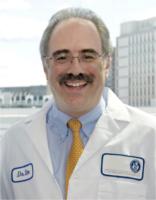
Saturday, April 21st
4:45 pm – 5:15 pm
International Ballroom
Grousbeck Professor of Pediatric Medicine at Harvard Medical School
Dr. Zon is the Grousbeck Professor of Pediatric Medicine at Harvard Medical School, an Investigator at Howard Hughes Medical Institute, and the Director of the Stem Cell Program at Boston Children’s Hospital. He is internationally-recognized for his pioneering work in stem cell biology and cancer genetics, and has been the preeminent figure in establishing zebrafish as an invaluable genetic model for the study of blood and hematopoietic development.
Jeffrey M. Drazen, MD (ASCI/AAP Speaker)
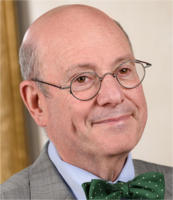
Saturday, April 21st
7:00 pm – 9:30 pm
International Ballroom
Editor-in-Chief, New England Journal of Medicine
Dr. Drazen holds the positions of senior physician at the Brigham and Women’s Hospital, Distinguished Parker B. Francis Professor of Medicine at Harvard Medical School, professor of physiology at the Harvard School of Public Health and adjunct professor of medicine at the Boston University School of Medicine. He is also the recipient of honorary degrees from the University of Ferrara, the University of Athens and the University of Modena.
An active researcher in the field of pulmonary medicine, Dr. Drazen defined the role of novel endogenous chemical agents in asthma, leading to four licensed pharmaceuticals for asthma, now used by tens of millions of people worldwide. He has published over 500 papers, editorials and review articles and has edited ten books, including Goldman-Cecil Medicine and Asthma and COPD. In 2000, Dr. Drazen became editor-in-chief of the New England Journal of Medicine. Since then, the Journal has published major papers advancing the science of medicine, including the first descriptions of SARS, timely coverage of the Ebola and Zika virus epidemics, and advances in the treatment of cancer, heart disease and lung disease.
Juliane Bubeck-Wardenburg, MD, PhD (ASCI/AAP Speaker)
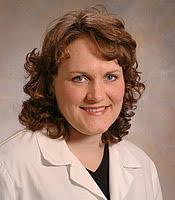
Saturday, April 21st
3:15 pm – 3:45 pm
International Ballroom
Washington University Pediatric Critical Care Medicine Division Director
Dr. Juliane Bubeck Wardenburg is the Strominger Endowed Professor of Pediatrics and Division Chief of Critical Care in the Department of Pediatrics at Washington University in St. Louis. She received her M.D. and Ph.D. degrees in Immunology from Washington University, subsequently pursuing clinical training in General Pediatrics and Pediatric Critical Care at the University of Chicago. During this time, Julie investigated the pathogenesis of Staphylococcus aureus infection in the laboratory of Dr. Olaf Schneewind in the Department of Microbiology as a Pediatric Scientist Development Program Fellow. Since 2008, the Bubeck Wardenburg laboratory has focused on the role of bacterial toxins in perturbation of host cellular and tissue homeostasis.
Julie is known internationally for her expertise in the molecular pathogenesis of Staphylococcus aureus disease. Her laboratory has made seminal contributions to understanding how S. aureus alpha-toxin contributes to infection, positioning this protein as a leading target of S. aureus vaccines in human clinical trials. More recently, her laboratory has extended their scope of interest in bacterial toxins to the investigation of the Bacteroides fragilis toxin, revealing strategies for disease targeting based on genetically-informed perturbation of the colonic microbiome. She is the recipient of the 2011 Society for Pediatric Research Young Investigator Award and the 2011 University of Chicago Distinguished Investigator Award. In 2012, she was named a Burroughs Wellcome Investigator in the Pathogenesis of Infectious Diseases and was elected to the American Society for Clinical Investigation.
Sharon K. Inouye, MD, MPH (APSA Speaker)

Sunday, April 22nd
9:30 pm – 10:30 pm
International Ballroom
Hebrew SeniorLife/Harvard Medical School
Dr. Inouye is an internationally recognized leader in geriatric medicine and aging research. She is an elected member of the National Academy of Medicine, chaired the Delirium Clinical Guidelines Panel for the American Geriatrics Society, and serves as an Associate Editor of the Journal of the American Geriatrics Society. Her research focuses on prevention of delirium and cognitive decline with aging, promoting healthy aging and independence follow acute illness, and improvement of healthcare systems through policy.
Continuously NIH-funded since 1989 with over 50 grants and over 250 publications, Dr. Inouye developed the Confusion Assessment Method (CAM)—the most widely used method for delirium identification, used in over 4000 publications and translated into 20 languages—along with the Hospital Elder Life Program (HELP) for delirium prevention, a cost-effective model of patient-centered care that has been disseminated to over 200 hospitals worldwide. She was recently awarded an R24 Delirium Network grant by the National Institutes of Health. She is committed to translating research into practice and policy changes.